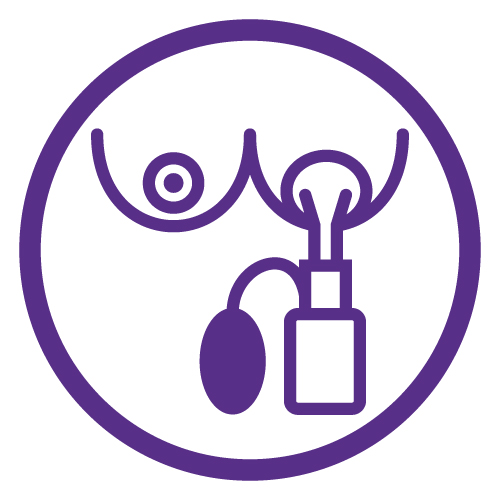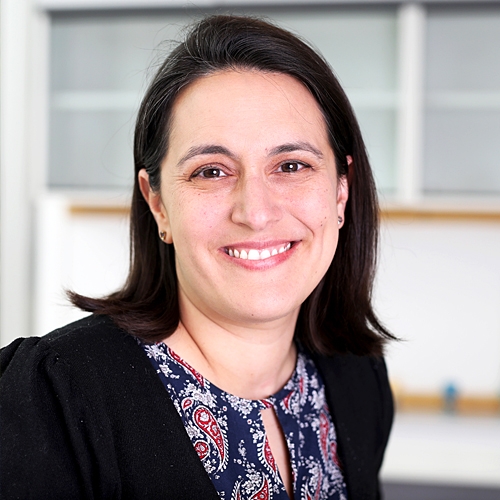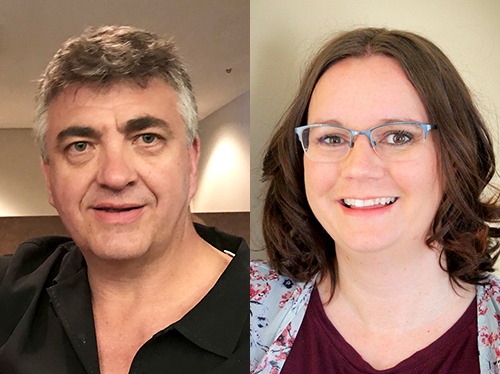 Lactation & Breastfeeding Online Course(s) & Continuing Education
Lactation & Breastfeeding Online Course(s) & Continuing Education
Access the latest clinical skills and research for Lactation & Breastfeeding for professional training. These Lactation & Breastfeeding online courses provide practice-changing skills and valuable perspectives from leading global experts. This Lactation & Breastfeeding education has been accredited for a variety of CEUs / CERPs and can be accessed on-demand, at your own pace.
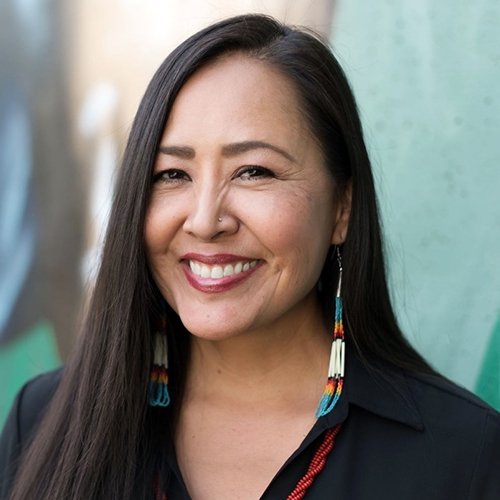
The Power of Story Telling: A Tool for Addressing Historical Trauma and Breastfeeding

Kim is born for Naakaii Diné (Mexican People) and from Tsi’naajinii (Black Streak People) clans. Born in Tuba City, maternally from Tolani Lake, AZ located in the southwestern area of the Navajo Nation. Growing up on and off the Navajo Nation, and residing in various tribal communities throughout her life, Kim is passionate about utilizing her education and experience to promote healthy living through kinship values.
Kim is a International Board Certified Lactation Consultant and has over 10 years of experience in peer-counseling, clinical and educational lactation. Kim’s work has been inclusive of Tribal and culturally diverse communities serving the needs of prenatal, newborns, and post-partum mothers and families. She is a Co-Instructor for the Indigenous Breastfeeding Counselor training course providing cultural breastfeeding and clinical education to those that can serve their community throughout Turtle Island. She also independently consults with Changing Woman Initiative out of New Mexico, a free access birth center serving Indigenous women to reproductive wellness. She is serving her second term on the United States Breastfeeding Committee Board of Directors. Currently, Kim continues to work at Valley Wise Health Medical Center as a Hospital lactation consultant for eight years and is serving the front lines assisting families and COVID mothers during the pandemic with breastfeeding and hospital policies. She also implemented the first Arizona Lactation Mentorship Pilot Program at Valleywise Hospital mentoring two student interns. This allows access to clinical hours to create strategic initiatives to bring BIPOC diversity, equity and inclusion to the field of lactation.
Currently a member of the Advisory Council Committee for the Navajo Nation Breastfeeding Coalition; she will the Urban Dine’ Community Representative for the Phoenix area. This new role will include breastfeeding home visits and telehealth lactation support serving the urban and telehealth rural BIPOC community. She recently collaborated with Wellness Within Reach also providing breastfeeding education and one on one breastfeeding support. Kim's extensive experience in this field has led to opportunities in consulting, which along with her husband synthesized their consulting business in Tribal Indemnity. Within three years, Tribal Indemnity has assumed responsibility of complex projects and strategic planning with one of the largest Tribes in Arizona. She recently established her own small business, Indigenous Breastfeeding Az, dba.
Kim enjoys spending time with her husband of twenty-three years and three daughters of whom she breastfed until they were 2 years old. She also loves early morning runs, hiking, boxing and yoga.
Native people are natural story tellers. This method of knowledge exchange has been around for thousands of years. Story telling is a fundamental tool that has been used to pass down information, share ideas and a teaching opportunity within Indigenous communities. It allows understanding of lived experiences and consequences to sustain and restore balance for many generations. An important component of lactation counseling is we can learn from an Indigenous lens from listening to one’s story when addressing breastfeeding families.
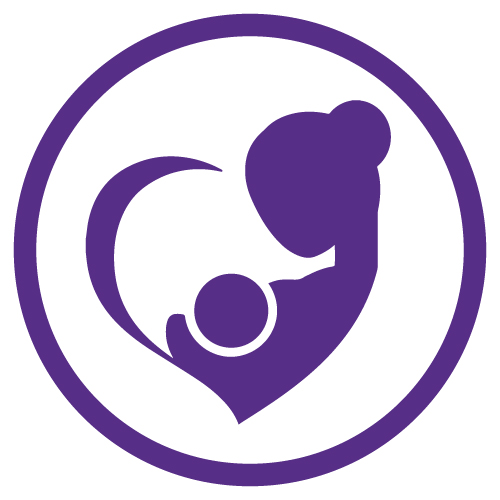
View Details / Enroll
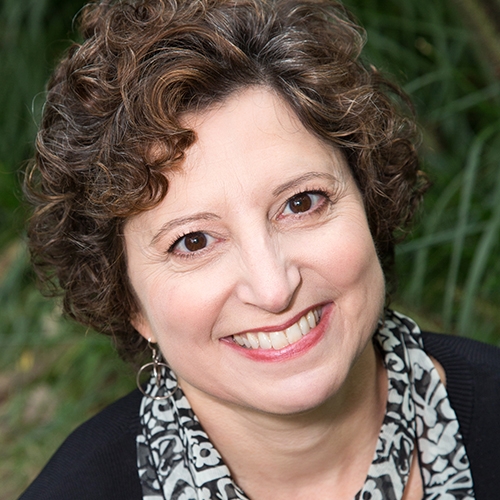

Alyssa has been helping parents and babies with breastfeeding since 2002, first as a La Leche League Leader and since 2009 as an International Board Certified Lactation Consultant.
Alyssa works in private practice serving clients worldwide, primarily through telehealth. She is the author of Breastfeeding Without Birthing: A Breastfeeding Guide for Mothers Through Adoption, Surrogacy, and Other Special Circumstances and a professional supplement to the book, The Breastfeeding Without Birthing Professional Pack online training.
Alyssa has authored articles for The Journal of Human Lactation: The Three Step Framework for Inducing Lactation and Successful Co-Lactation by a Queer Couple: A Case Study. She has also authored articles for La Leche League’s Leader Today and Breastfeeding Today magazines, and Adoptive Families magazine. She is an international speaker on the topics of inducing lactation, relactation, and other related topics. Alyssa is the proud mother of three breastfed children, two by birth and one by adoption. She lives in St. Louis, Missouri, USA.
Topic: Demystifying Inducing Lactation: How Lactation Happens Without Pregnancy and Birth - [View Abstract]
Topic: ReLATCHtation: Transitioning the Exclusively Bottle-fed Baby to Nursing - [View Abstract]
Topic: Supplementation: A Goldilocks Dilemma - [View Abstract]
Topic: The Proficient Pumper - [View Abstract]
Many breastfeeding parents rely on a breast pump to help provide milk for their babies when they are separated or not feeding directly from the breast for other reasons. Others will use a breast pump to bring in or grow their milk production. Some of these parents may find pumping uncomfortable. Many others have difficulty expressing enough milk to meet their babies’ needs. There are also those who produce an overabundance of milk while pumping. This session addresses all of these parents by providing ideas for making pumping as effective, efficient, and comfortable as possible.
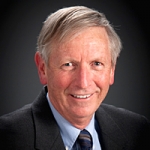

Topic: The Recreational Drug-Marijuana Dilemma - [View Abstract]
It is quite apparent that in our current society, pregnant and breastfeeding women do use and ingest recreational substances (in both a wisely manner and unwisely manner) and drugs of abuse, natural and/or synthetic. Marijuana use is of special concern currently, especially considering the ethical and legal concerns of its use. The objectives of this presentation are to effectively evaluate recreational drug use during breastfeeding and pregnancy; to counsel mothers who are pregnant or breastfeeding and using recreational drugs, including marijuana; and to discuss and address ethical concerns regarding marijuana use.

View Details / Enroll
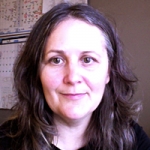

Tina Revai came to breastfeeding professionally in her practice working with families as a nurse of 25 years. However, once becoming a mother, her understanding of breastfeeding as an important factor in the feeling of success (or not) in parental role transition became experientially apparent. In order to support others towards self-defined breastfeeding success, Tina became a La Leche League Leader in 2006 and an IBCLC in 2007. She is currently co-president of the British Columbia Lactation Consultants Association and continues to work directly with families in her community of Port Alberni, on beautiful Vancouver Island, Canada.
The Relational Breastfeeding Framework is a process driven model for clinical breastfeeding supports that is consistent with the origins of the IBCLC profession. Little has been published that theorizes pragmatically about lactation support, bridging both the instrumental and relational aspects of this work. The introduction of this framework is an important contribution to theory development within the profession in that it unravels the complexity of reflective and dyad centered care, making clear the process for those who seek to practice in this way. This presentation makes the case that relational breastfeeding support is consistent with the underlying philosophy and history of the profession and should be the goal of all lactation consultants. However, equally relevant, another purpose to this presentation is to spark a generative debate about what we do and how we do it.

View Details / Enroll
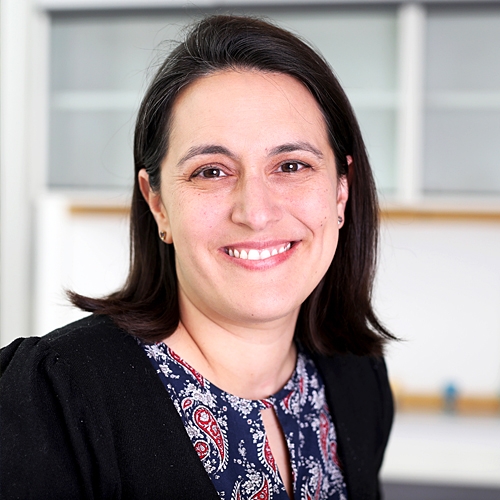

Dr Natalie Shenker is a former surgeon, scientist, and the cofounder of the Human Milk Foundation, which aims to ensure more babies are fed with human milk. As well as supporting a range of educational and research studies, the HMF aims to ensure assured access to screened donor milk through a network of human milk banks based on the cost-effective innovative model of the Hearts Milk Bank (HMB). Milk banks provide screened breastmilk to premature babies whose own mothers need time to establish breastfeeding, protecting them from a range of life-threatening complications and supporting the mother to breastfeed. The HMB has been operating in the UK for 18 months, and has supported neonatal units as well as families in the community where breastfeeding is impossible or taking time to establish.
Evolution has created human milk as a way to protect the baby postnatally, patterning the immune system and microbiome, and providing diverse developmental cues for each organ system to develop normally. Milk also provides nutrition. When screened donated human milk (DHM) is available, mothers facing the most stressful circumstances of having an ill premature baby tend to have high chances of establishing breastfeeding. If donor milk is used appropriately as a bridge to lactation, they are less likely to perceive that their bodies have failed. The work of the Hearts Milk Bank over 18 months have laid the foundation for a UK-centred drive to upscale milk bank capacity, facilitate research to determine the optimal use of donor milk, and support a shift in perception about the role of human milk, underpinned by the latest science.

View Details / Enroll
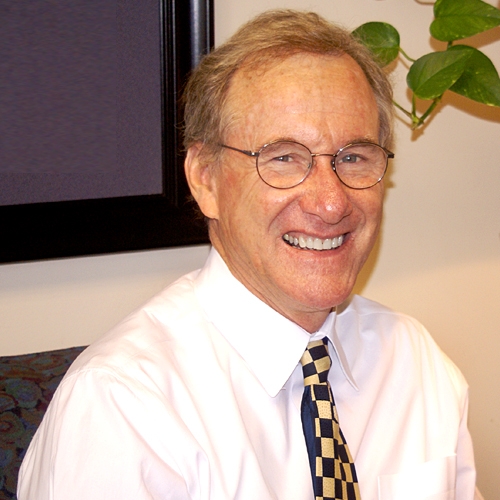
The Return of Breastsleeping: Humankind’s Oldest and Most Successful Sleep and Feeding Arrangement

JAMES MCKENNA (B.A., University of California, Berkeley; M.A., San Diego State University; Ph.D., University of Oregon) Rev. Edmund P. Joyce, C.S.C., Professor of Anthropology
McKenna pioneered the first behavioral and electro-physiological studies documenting differences between mothers and infants sleeping together and apart and has become known worldwide for his work in promoting studies of breast feeding and mother-infant cosleeping. A biological anthropologist, and Director of the Mother-Baby Behavioral Sleep Laboratory McKenna began his career studying the social behavior and development of monkeys and apes with an emphasis on parenting behavior and ecology. He has published over 150 articles and six books including a popular parenting book Sleeping With Your baby: A Parents Guide To Co-sleeping. He has coedited Ancestral Landscapes In Human Evolution, Evolutionary Medicine, and a more recent co-edited volume Evolution and Health: New Perspectives (Oxford University Press. He won the prestigious Shannon Award (with Dr. Sarah Mosko) from the National Institutes of Child Health and Development for his SIDS research and is the nation's foremost authority and spokesperson to the national press on issues pertaining to infant and childhood sleep problems, sleep development, and breastfeeding.
Breastsleeping refers to bedsharing-amongst breastfeeding mothers and infants occurring in the absence of all known independent risk factors.
Given that most breastfeeding mothers bedshare, there is a critical need to develop a new SIDS/SUID discourse, one that employs harm reduction strategies, family- tailored education, evidence-based medicine, and primary advice formulated by breastfeeding and lactation communities, researchers and associations. This new bottom-up, evidence-based discourse first and foremost respects what parents say they need, want, can and are willing to do.
This discourse acknowledges that, in the United States, bedsharing is common and what helps us to understand it is to reference scientific studies (heretofore dismissed by ‘authorities’) on the powerful infantile and parental biological factors that motivate bedsharing, and the realization that sleep-related risks are not co-equal but vary along a significant continuum of relative risks ranging between acceptable (especially where exclusively breastsleeping occurs i.e. where hazardous factors are eliminated) to unacceptable where a variety of well independent “risk factors’ are present.
I argue here for recommendations based on evidence-based medicine rather than the ideologically driven opinions and assumptions of those making the recommendations which are failing after 20 years of attacks on bedsharing and bedsharing families.
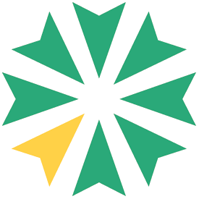
View Details / Enroll
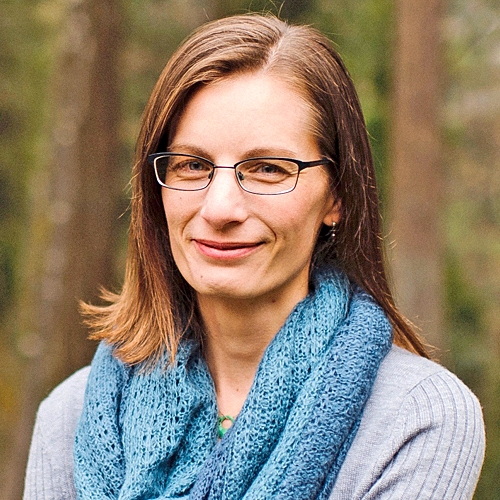
The Science of Infant Feeding: New Research on Gut Development, Microbiome, and Risk of Allergy

Alice Callahan completed her PhD in Nutritional Biology at UC Davis in 2008, followed by a postdoc in fetal physiology at the University of Arizona. She left the academic track in 2011 to pursue a dual career in college teaching and science writing. Her book, The Science of Mom: A Research-Based Guide to Your Baby’s First Year, about the science of raising a baby, was published in 2015 by Johns Hopkins University Press and was named one of the best science books of the year by Science News. As a freelance writer, Callahan covers health and nutrition topics – often focusing on pregnancy, infancy, and childhood – for many publications, including The New York Times, Washington Post, and Lifehacker. She and her family live in Eugene, Oregon, where she also teaches nutrition and physiology at the University of Oregon and Lane Community College.
Research continually uncovers the complex relationship between infant feeding and development. It’s driven by our fascination and desire to understand early development, but it also has real-world implications for the decisions parents make about how to feed their babies. New parents and even perinatal professionals are often confused about infant feeding guidelines, finding information to be conflicting, overwhelming, and ever-changing. We’ll start with an overview of how an infant’s gastrointestinal tract develops and what we know about how human milk consumption supports optimal development. Then we’ll delve into the latest research on intestinal permeability, early formula supplementation, and timing of introduction of solid foods to prevent allergies. Feeding is one of the primary ways that we care for and show babies that we love them, and by providing up-to-date and accurate information, perinatal professionals can help families feel calm and confident about their feeding choices.

View Details / Enroll
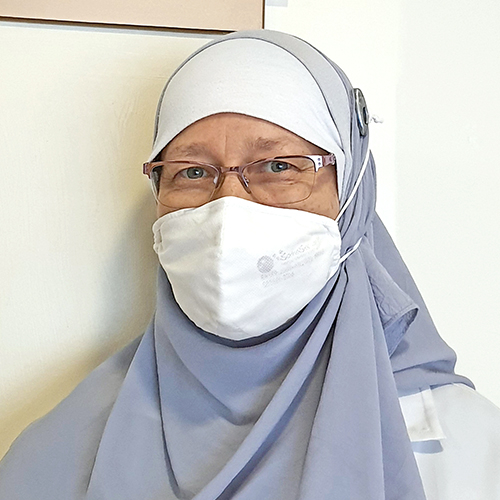
The Sharjah Baby-Friendly Campaign: A Community-Based Model for Breastfeeding Promotion, Protection and Support

Evelyne Ruf is a family physician from France, and an International Board Lactation Consultant (since 1993). More than 25 years ago, she shifted to the United Arab Emirates (UAE), working for the Ministry of Health, in Sharjah MCH Center. She opened there the first Lactation Clinic in the UAE, with the support of volunteers from Breastfeeding Friends (BFF), which she had co-founded.
Five years ago, the Lactation Clinic has been shifted to the Family Health Promotion Center, where it continues to offer, to a very cosmopolitan population, skilled lactation support as well as assessment and release of tethered oral tissues.
A member of the National Breastfeeding Committee, Evelyne has been involved in the Baby-Friendly Hospital Initiative as a lecturer, trainer, adviser and assessor. Her workplace became the first Baby-Friendly Health Center in the UAE and received the IBCLC Care Award (community category) in 2015.
She has also been actively involved in the Sharjah Baby-Friendly Emirate Campaign, a multi-sectorial initiative launched in 2012, and presented its achievements during Gold Lactation 4 years ago.
With her husband of 34 years, she is the proud and grateful mother of 5 grown-up breastfed children and the grandmother of 4 breastfed little ones.
Topic: The Sharjah Baby-Friendly Campaign: A Community-Based Model for Breastfeeding Promotion, Protection and Support - [View Abstract]
Despite the recommendations and various initiatives to promote breastfeeding, most women don’t reach the exclusive breastfeeding target in both developed and developing countries. Similar has been the case in the United Arab Emirates.
Therefore based on the decree by the ruler of the Emirate of Sharjah, UAE, a multi-sectorial, multi-directional breastfeeding campaign-the Sharjah Baby-Friendly Campaign- was launched in March 2012. It consisted of 4 initiatives namely Baby-Friendly Health Facility, Mother-Friendly Workplace, Breastfeeding-Friendly Nursery and Mother-Baby Friendly Public Place. Once an organization met the criteria for any of these initiatives it was awarded the designation or accreditation of that initiative.
The campaign initiatives worked through capacity building of healthcare workers, developed breastfeeding education content and resources, and conducted community outreach through social media.
The positive impact of the campaign on breastfeeding promotion, protection and support is evident by the tripled exclusive breastfeeding rate at 6 months over a 5 years period.

View Details / Enroll
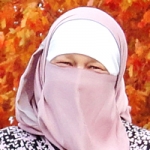
View Details / Enroll

The Vagus Nerve: Branchial Motor / Special Visceral Efferents: The Pharynx, Larynx, Soft Palate and one tiny tongue muscle

Michelle has been a pediatric neurodevelopmental Occupational therapist specializing in precrawling infants for over 26 years. She has specialty certifications and training in lactation, manual therapy, and pre and peri natal psychology. Michelle has specialized in optimal cranial nerve function and oral restrictions, with an emphasis on infant movement, innate biological imperatives and human potential, providing novel curriculums, support and resources for both professionals and parents. She enjoys collaborating and working in teams for babies and families going through the tethered oral tissues release process.
Topic: Breastfeeding and Cranial Nerve Dysfunction – the what, who and why of Cranial Nerve Dysfunction in the newborn to precrawling baby - [View Abstract]
Topic: Compensatory vs Novel Movements: 3 Keys for Babies With Tongue, Lip and Buccal Restrictions - [View Abstract]
Topic: Interoception: Beyond the Homunculus....The Real Sixth Sense and Its Primary Function as Sensory Input to the Autonomic Nervous System - [View Abstract]
Topic: The Vagus Nerve: Branchial Motor / Special Visceral Efferents: The Pharynx, Larynx, Soft Palate and one tiny tongue muscle - [View Abstract]
Topic: TummyTime!™ : A Therapeutic Strategy for Parents and Babies - [View Abstract]
Babies with tongue/oral restrictions and Cranial Nerve Dysfunction (CND) present with clinical indicators of decreased airway patency which interrupt latch and breastfeeding skills, airway development and Autonomic Nervous System regulation. These difficulties are noted clinically by mouth breathing, open mouth posture, stridor, snoring and other noisy breathing, suboptimal breathing patterns, decreased suck/swallow/breathe coordination and poor tongue and jaw posture / movement during activity and rest. Many of us are familiar with the Vagus nerve and the vital role it plays as our body’s sensory/afferent relayer of information to the central nervous system, as well, the Vagus serves as the primary parasympathetic influence on most of our viscera, including our heart, which helps us regulate. However, what we often gloss over is the motor input to the skeletal muscles of the soft palate, pharynx, larynx and tongue which directly impact breathing. This lecture will delve into this fascinating topic and provide clinical applications.
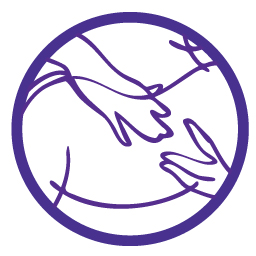
View Details / Enroll
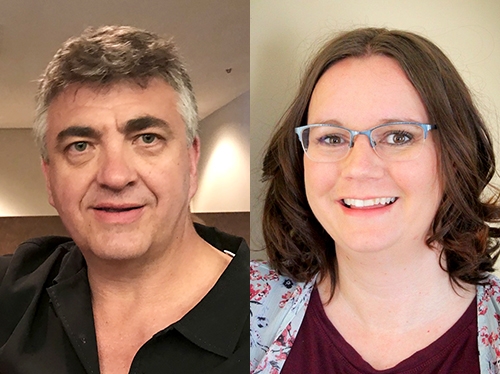
The Value of Prenatal Hand Expression of Colostrum

Naida Hawkins is a Registered Nurse and Lactation consultant in North Battleford, Saskatchewan. She is a passionate registered nurse who has cared for breastfeeding families for 14 years.
Almereau Prollius is an Obstetrician and Gynecologist in Saskatoon, SK. Together with Naida they have a special interest in strategies to promote successful breast feeding and are advocates of prenatal hand expression. They work as part of an interdisciplinary team supporting families to have an easier time starting and continuing breastfeeding.
More Milk Sooner is their program which supports and promotes hand expression in the antenatal and early postpartum period. Based out of Saskatoon and North Battleford in Saskatchewan, they hope to empower patients and care providers to increase successful breastfeeding. They are delighted to be sharing their journey with you. They are actively involved in research reviewing the outcomes of the implementation of the prenatal hand expression education strategy.
Exclusive breastfeeding for the first six months of life is currently recommended by numerous health authorities including the World Health Organization and UNICEF, and should be encouraged and supported prenatally, perinatally and postpartum. Despite these recommendations, the rate of sustained breastfeeding to six months of life remain low. Prenatal hand expression (PHE) is a method used to assist with colostrum collection beginning near term pregnancy. This technique is low-cost and easy to teach and learn. It has been shown to reduce problems with milk stasis, mastitis and breast engorgement by mobilizing colostrum and breastmilk. Learn more about how this technique can improve breastfeeding exclusivity and duration and how to implement it in your practice.

View Details / Enroll



